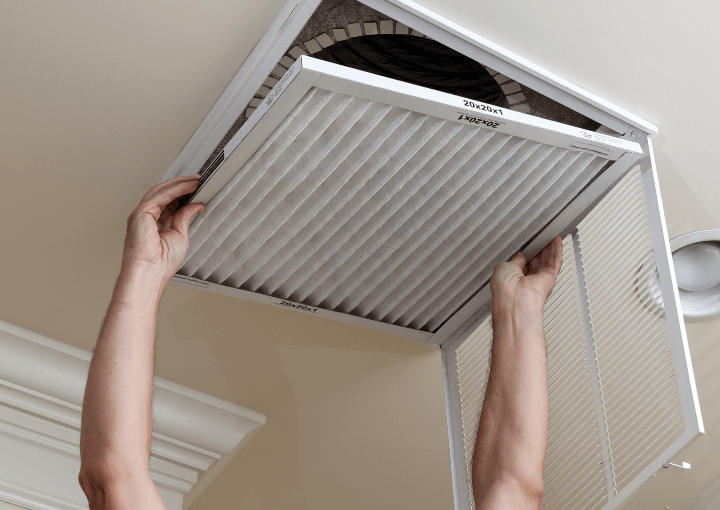In the realm of home maintenance, there’s a small yet crucial task that often slips the minds of homeowners: changing air filters. These unassuming components play a significant role in the quality of indoor air and the efficiency of heating, ventilation, and air conditioning (HVAC) systems. Despite their modest appearance, neglecting to change air filters regularly can lead to a host of problems, ranging from diminished air quality to increased energy bills and even potential health hazards. Understanding the importance of changing air filters is essential for maintaining a healthy and comfortable living environment.
First and foremost, air filters serve as the first line of defense against airborne particles and pollutants. As air circulates through the HVAC system, the filter traps dust, pollen, pet dander, mold spores, and other contaminants, preventing them from recirculating throughout the home. Over time, however, these filters become clogged with debris, reducing their effectiveness and allowing pollutants to accumulate in the air. This can lead to a decline in indoor air quality, exacerbating allergies, asthma, and other respiratory conditions.
Regularly changing air filters is crucial for preserving indoor air quality and mitigating health risks. By replacing dirty filters with clean ones, homeowners can ensure that their HVAC systems operate efficiently, circulating clean air throughout the home. This not only promotes respiratory health but also creates a more comfortable living environment free from airborne irritants.
Furthermore, changing air filters is essential for maintaining the efficiency and longevity of HVAC systems. When filters become clogged with dirt and debris, airflow is restricted, forcing the system to work harder to maintain the desired temperature. This increased strain can lead to higher energy consumption and premature wear and tear on HVAC components, ultimately reducing the lifespan of the system. By regularly changing air filters, homeowners can optimize HVAC performance, lower energy bills, and prolong the lifespan of their equipment.
In addition to improving indoor air quality and HVAC efficiency, changing air filters can also have financial benefits for homeowners. While the cost of purchasing replacement filters may seem insignificant compared to other home maintenance expenses, the long-term savings can be substantial. By maintaining clean filters, homeowners can reduce energy consumption, lower utility bills, and avoid costly repairs or premature replacement of HVAC systems. In this sense, changing air filters is not just a matter of home upkeep but also a savvy investment in energy efficiency and cost savings.
Beyond the practical considerations, changing air filters is also a matter of environmental responsibility. Energy consumption associated with heating and cooling accounts for a significant portion of household carbon emissions. By optimizing HVAC efficiency through regular filter changes, homeowners can reduce their carbon footprint and contribute to efforts to mitigate climate change. In an era of growing environmental awareness, every small step toward energy efficiency and sustainability makes a difference.
Changing air filters is a simple yet essential aspect of home maintenance with far-reaching implications for indoor air quality, HVAC performance, energy efficiency, and environmental sustainability. By prioritizing regular filter changes, homeowners can ensure a healthy and comfortable living environment, lower energy bills, and reduce their environmental footprint. Whether it’s for the sake of respiratory health, equipment longevity, or financial savings, the importance of changing air filters in a home cannot be overstated. It’s a small investment of time and resources that pays dividends in terms of comfort, efficiency, and overall well-being.
